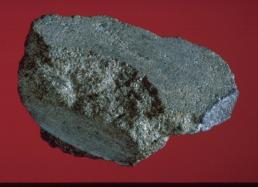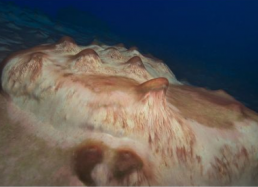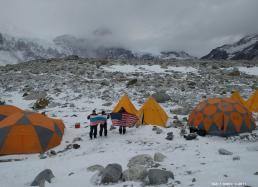About the Expedition
Antarctica may seem like an unlikely spot to search for the origins of life on Earth. But the continent’s frigid climate creates the perfect conditions for preserving some of the earliest evidence we have of our planet’s ancient history.
Meteorites & Glaciers
Like little extraterrestrial time capsules, meteorites contain remnants of our solar system’s early days. The minerals and chemicals locked within meteorites tell us about the building blocks that went in to forming our sun, planets, atmosphere, and even life on Earth.
When meteorites land in a warm, wet environment, water and wind can scatter them far and wide and wash away their important information. But Antarctica’s dry ice puts the freeze on weathering, and its glaciers act like giant conveyor belts, carrying and concentrating meteorites in predictable locations (called "stranding surfaces") where scientists can collect and study them.
Stromatolites & Glacial Lakes
Layered rock formations called stromatolites provide a record of Earth’s earliest life forms: floating mats of microbes (single-celled organisms) that once thrived in Earth’s oceans. Through the process of photosynthesis, these microbial mats created an oxygen-rich atmosphere where other life forms eventually emerged.
Antarctica is one of the few places in the world where microbial mats still survive and form stromatolites. By studying how these modern mats function, we can learn about how they contribute to the global ecology today—and how they may have evolved more than 3.5 billion years ago, when life on Earth first began.
The 2012 Expedition
In December of 2012, a combined team of scientists will travel to Queen Maud Land in East Antarctica to search for evidence of Earth’s earliest history. Dr. Philipp R. Heck from The Field Museum will join the Geological Survey of India's team led by Ashit Swain at Maitri Station to search for meteorites on the Anuchin Glacier that flows towards the Gruber and Wohlthat Mountains.
At the same time, Drs. Dale Andersen and Alfonso Davila from the SETI Institute, Drs. Valery Galchenko and Vladimir Akimov, from the Russian Academy of Science, and Michael Becker from McGill University will set up a remote camp at Lake Untersee to look for microbial mats, stromatolites, and other forms of microbacterial life.
To learn more about their mission, explore the stories in “About the Expedition”—and be sure to keep up on the team’s discoveries by checking in on Dr. Heck’s weekly blogs and photos from the field!




